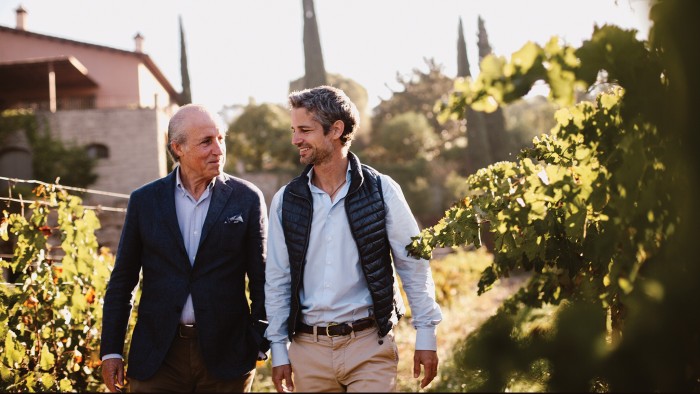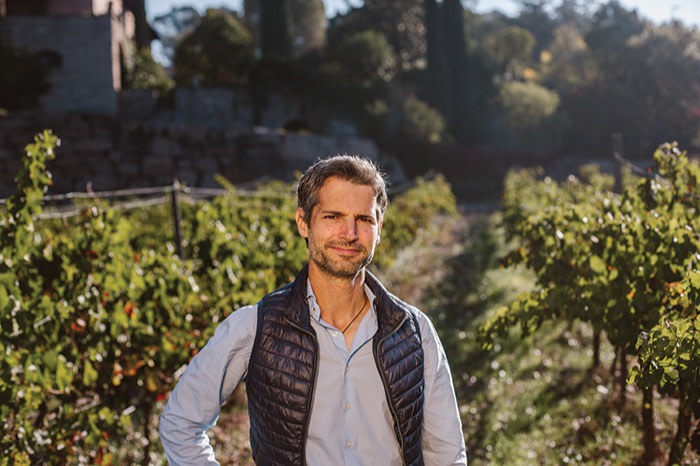What can business school teach a family firm?

Roula Khalaf, Editor of the FT, selects her favourite stories in this weekly newsletter.
It could be said that Ramon Roqueta was born to make wine. He is the fifth generation of his family to run Roqueta Origen, a group of wineries in Catalonia, north-east Spain. In 1898, his great-great grandfather established the first of the family’s four wineries, but the business’s origins date back even further.
Historical records show that Roqueta’s ancestors began making wine at the Masia Roqueta farmhouse, in the Bages region north of Barcelona, in 1199. More than 800 years later, the company’s headquarters are on the same site.
Roqueta turned to Iese Business School in Barcelona to prepare for his eventual succession. After training at wineries in France, Australia and the US, he enrolled on the Iese MBA in 2005 to sharpen his business and leadership skills. “It’s not only about making wine, but selling it and making the business profitable,” he explains.
After graduating in 2007, Roqueta worked in consulting, then took up a management role in the family business in 2009. It was about this time that he enrolled in Iese’s Alumni Learning Program, a series of free training sessions focusing on specific areas of business. Over several years, he took classes on family business challenges such as succession planning and managing family conflicts.
He learnt how to create a family protocol, a document that codifies the business’s values, vision and mission, along with rules of ownership, governance and management. The process involved the various family members, which reinforced unity. “This has been a competitive advantage for the company over the generations,” says Roqueta, who took over from his father, Valentí, as chief executive in 2014.

Other business schools are emulating Iese by launching courses that focus on the needs of family businesses, which tend to take a long-term outlook on investments instead of chasing quarterly returns. Family businesses typically have strong stakeholder relationships and more loyal workforces than other companies. They are also typically more risk-averse and carry less debt.
“We can learn several things from family businesses,” says Allan Discua Cruz, director of the Centre for Family Business at Lancaster University Management School in north-west England. “There are so many concepts and dynamics that are worth understanding, such as business continuity, legacy, stewardship and resilience.”
Some academics say that every business student should learn about family enterprise. “With the bulk of economic activity and private sector employment in many European countries generated by family businesses, it is highly likely that our graduates will be working for one at some point,” says Marta Elvira, chair of family-owned business at Iese.
She notes an expansion of career opportunities, including at the growing ranks of family offices, in addition to jobs at companies that service family businesses, such as banks and consultancies. Other, more entrepreneurial, students are interested in establishing new business dynasties.
Business schools in Europe are therefore sharpening their focus on family enterprises, which make up 60 per cent of the region’s companies — from small businesses to multinationals such as Exor, the investment company owned by Italy’s Agnelli family, and Germany’s Volkswagen, the carmaker controlled by the Porsche and Piëch families.
Morten Bennedsen, academic director of the Wendel International Centre for Family Enterprise at Insead business school in France, points out that family business research only emerged as an academic field in the 1980s. “Business schools have not traditionally focused on family firms. That is changing as awareness grows,” he says. Many entrepreneurs still do not believe their families need a business education, Bennedsen says, but adds: “As these companies scale, there is a need to professionalise the management and governance. That is what you cannot learn from the family.”
About 10 per cent of the 1,000 MBA students who enrol at Insead each year are from family-owned companies. Typically, they are heirs, while current owners take part-time executive courses to handle the pressures of preserving a family legacy. Insead offers a family business elective in its MBA, in addition to an executive programme that addresses the challenges these companies face.
Family businesses are sometimes said to be especially resilient during crises, but the research is inconclusive. Daniela Maresch and Matthias Fink at France’s Grenoble Ecole de Management found that such businesses reported significantly more financial losses than others during the pandemic. The initial stabilising effect of family involvement can turn into a liability as crises unfold, the professors say, as the burden of responsibility ignites family conflict.
Milan’s SDA Bocconi School of Management plans to launch new executive courses for family businesses next year. “There is now a stronger focus on risk mitigation and resilience,” says Alessandro Minichilli, professor of corporate governance at the school. “The demand for business education in areas like succession planning, sustainability and governance is huge.”
Rania Labaki, head of the Edhec Family Business Centre in Lille, France, points out that only 30 per cent of family enterprises make it to the second generation, with the survival rate dropping precipitously with each succession.
The largest transfer of wealth on record is expected in the coming decade as baby boomers retire. In Europe, at least $3.2tn will change hands by 2030 and, in many European economies, the number of family business leaders over 70 has been rising in the past decade.
Labaki believes succession is where business schools can really make a difference: “Young heirs often face a challenge of legitimacy, and they need our competencies to lead the family business,” she says.
Comments